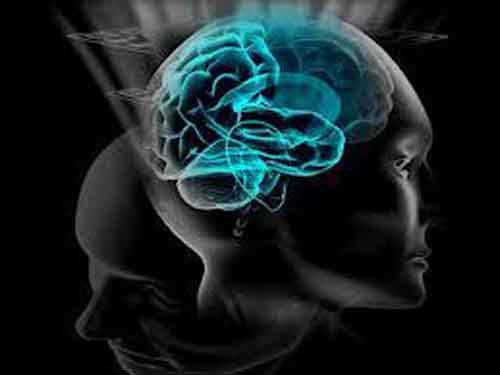Neuroscientists and cutting edge computer developers are in the first stages of building a “bridge between flesh and chip.” Chillingly, promoters speak of a “brave new world” of thought-controlled machines–in the opposite way that Aldous Huxley used the term. Just what are the implications of directly linking the brain with the computer?
 Not surprisingly, much of the funding for the technology of “brain actuated control” is coming from the US Defense Department. The American government, in its desire to maintain absolute military superiority, is concerned about the load that existing technologies are putting on its fighter pilots. Technologies are being developed that would enable pilots to choose weapon systems by merely thinking about them. This is called the “evolution of war.”
Not surprisingly, much of the funding for the technology of “brain actuated control” is coming from the US Defense Department. The American government, in its desire to maintain absolute military superiority, is concerned about the load that existing technologies are putting on its fighter pilots. Technologies are being developed that would enable pilots to choose weapon systems by merely thinking about them. This is called the “evolution of war.”
Interfacing computers and the human brain may enable a paraplegic to directly control artificial limbs and machines with his or her mind. But restoration of function is one thing, “enhancement” of functions another.
The challenge goes beyond the prevailing military, medical and market concerns. The issue is the intelligent use of scientific and technological developments that are coming online faster than anyone could have imagined even a decade ago. Technologies that “unlock the secrets of the mind to harness its power directly, and create thought-controlled machines” raise fundamental questions about the human mind, and what it means to be a human being.
“Brain actuated control,” or, in plain English, a direct link between thought and machine, presents the possibility of either freeing the human mind of thought, or completely enslaving it to thought. The trends in both history and present society do not bode well for human freedom.
As things are going, the merging of thought and artificial thought (“artificial intelligence” is an oxymoron) means a growing intellectual and psychological dependency on computers, and a growing control of the minds of the many by the few.
Moreover, there is a real and present danger to the essential unity of the brain, to our capacity for insight, which arises from the healthy and balanced functioning of our sensory, intellectual and emotional faculties as a whole.
Caution and questioning are the order of the day. By thoughtlessly welding the brain to the computer, we will lose capacities that we are only beginning to discover. I’m not referring to paranormal abilities of thought, such things as telepathy, clairvoyance, remote sensing, etc.
The brain is capable of awareness beyond words, images and knowledge. Our capacity for awareness and insight is the essence of the human being, and the wellspring of wisdom and understanding.
This capacity is completely distinct from thought.
Because of its power to remove ‘things’ from nature, and manipulate reified things at will (even the molecular and atomic level now), we strongly tend to glorify thought. Indeed, many people have a subconscious attitude of idolatry toward thought’s capabilities.
The current fascination with all manner of technological gadgets is a symptom of overvaluing the human mind and its products. In truth, there is nothing more boring than technology for technology’s sake.
Machines are already outpacing the intelligence to use them wisely. We’re being told ‘our bodies are getting in the way’ because the brain-eye connection is so much faster than the brain-hand capability.
What is the proposed solution? Link the brain directly to computers by splicing silicon chips with neuronal tissue, and abracadabra, we’re one with our machines!
It is already possible, through electrodes attached to the skull, to directly mentally control, to a rudimentary degree, simulation programs and video games. Properly connected, and with a little biofeedback training, you merely think which way you want the car or plane to go on the screen, for example, and it happens.
What will happen when we’re able to directly control machines with our thoughts? Without invoking the usual fear of being controlled by machines, how will the direct interface with computers change us? Will humans be reduced to cyborgs, a combination of biological and silicon substrate?
The brain is immeasurably more than thought. Thought-controlled machines have their place, but a clear distinction between the brain and the computer must be made and maintained, or the brain’s virtually untapped capacity for awareness and insight will be lost.
While many misguided humans compete to find ways of merging the brain with our machines, a few awakening human beings have to keep their brains whole. The future of humanity depends on it.
Martin LeFevre

